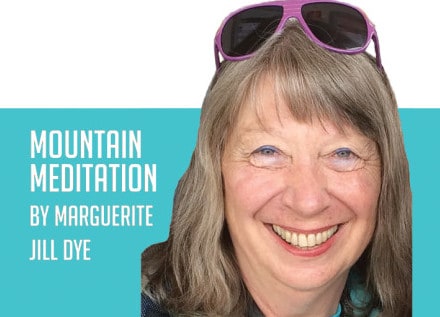By Marguerite Jill Dye
“The most traumatic part of being a refugee for me was the loss of our home, our village, and being torn from the place where I grew up that I knew and loved,” Walter Hess said at our dining room table. An attentive audience had gathered to hear Walter and his wife Hannah read from their books about their childhood escapes from  Hitler’s Germany. Hannah and Walter Hess hailed from the same area and their families were distantly related. On the cusp of WWII, both families fled to Ecuador before migrating to New York. The couple later met in Washington Heights, nicknamed “Frankfurt on the Hudson.”
Hitler’s Germany. Hannah and Walter Hess hailed from the same area and their families were distantly related. On the cusp of WWII, both families fled to Ecuador before migrating to New York. The couple later met in Washington Heights, nicknamed “Frankfurt on the Hudson.”
“Before Krystalnacht, Dad never wanted to leave Germany,” Walter explained from his book, A Refugee’s Journey. “But after he was taken to Dachau for six weeks, he agreed with my mother that we had to leave. My aunt in Holland helped us get visas,” Walter continued. “We came to America in 1940. A few months before then, our ship landed in Ecuador Sept. 1, 1939—the day the Germans invaded Poland and the start of WWII.”
“This is the type of experience that brings history alive,” observed Meredith Mayer, a Vermont Pen woman and writer at the gathering of the National League of Pen Women in our home. “My father was a history professor at Columbia. He said history hasn’t been the same since people stopped writing letters.”
“Who was your father?” Walter queried.
“Allan Nevins,” Meredith responded.
“I read your father’s history books. I majored in history at City College,” Walter said.
“Books like yours helps us see history with fresh eyes,” Meredith concluded.
Some of Walter’s stories that thrilled me the most were about teachers who influenced his life. Their positive gestures and affirmations showed me the influence a teacher can have in a child’s future. He saw newspaper caricatures of Jews (unlike any Jews he’d ever seen), and asked himself, “If these were Jews, what was I?” He remembered being called “scar,” “contagion,” “infection,” and “plague.”
The words to patriotic songs students sang in school made him feel excluded and different. His kind teacher whispered he didn’t have to sing, but “I knew I was ‘the other’,” he said. “The weight never lightened. It remains to this day . . . The memories of those times is imprinted in my brain.”An American teacher noticed Walter’s keen interest in the news and offered him his daily newspaper, the PM, a liberal paper in the forties that “dared to tell the truth.” Walter’s favorite subject was history. He measured his life by historical events. He learned their significance in wartime when their lives depended on them. His Bar Mitzvah coincided with the invasion of France.
In Public School 169, Walter’s fifth grade class studied Christopher Columbus. He wrote a play on Columbus’ challenge finding supportive European kings and queens. His teacher, Mrs. Hohenstein, was so impressed, she typed and printed copies so his class could perform it at the whole school assembly. Soon after, she offered Walter the opportunity to review movies monthly for the National Board of Review in the Paramount Theatre. It transformed his life. “I felt washed clean, relieved of some of the fear, the almost constant tension in my belly, the feeling of strangeness in almost every vista, the feeling that everything was temporary and provisional—all those feelings that had been my intimate possession since leaving Ruppichtheroth.” His teacher’s perception gave him a positive perspective on the “landscape” of his new life and home that had felt so foreign until that moment. She helped empower him to eventually become an award-winning documentary film editor.
It’s no wonder Walter fell in love with Hannah, a dedicated teacher, principal, and author. She read from her mystery novel, Honest Deceptions, about her medical intern heroine’s return to Germany to discover the wartime fate of her missing father and brother.
Hannah and her widowed mother never returned to Germany after the war. “I was very lucky to have a wonderful, strong mother” who “should have been a nun. Her answer to everything was always ‘pray!’” Yet she overcame her fathers’ limiting views about a woman’s role and courageously created a new life for five year old Hannah and herself in New York. “What I learned was eternal vigilance,” Hannah said.
“People need to realize that it if it happens to anyone, it happens to all of us . . . People forgot where they came from. It’s obscene. Or they remember and say, ‘Never again, but only for me and mine.’ My mother always said, ‘Don’t stick your neck out,’ but I said, ‘You have to.’ Be brave but don’t let it get to that point . . . I’m afraid it’s already beyond that point now. There’s very little we can do now but vote and help get out the vote.”
“Seeing our child and grandchild at the lake has given me comfort,” Hannah concluded. Vermont heals as we all know.
Marguerite Jill Dye is an artist and writer who divides her time between the Green Mountains of Vermont and Florida’s Gulf Coast.



